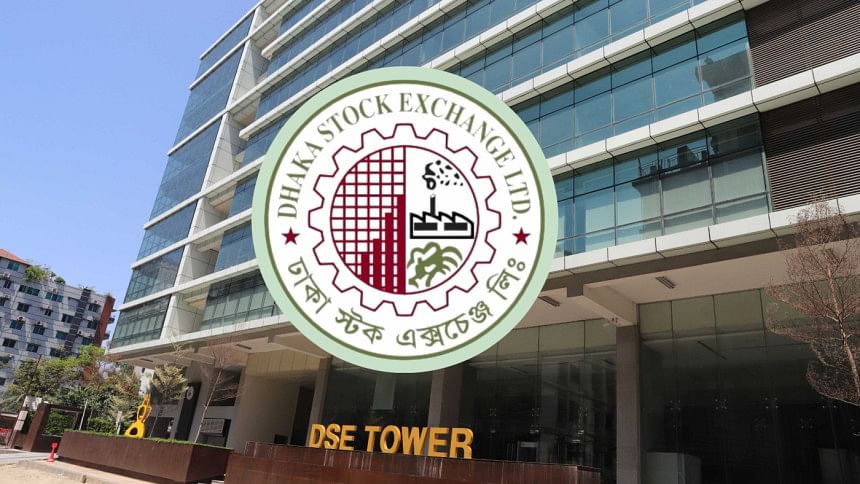High tax on stock trading deters investment

The existing tax structure discourages investors from investing in the stock market, according to representatives of the top brokerage houses of Bangladesh.
They said the National Board of Revenue (NBR) collects advance turnover tax from brokerage houses even if they incur losses, that too at a high rate compared to neighbouring countries.
However, this tax burden is ultimately shifted onto investors.
Additionally, investors are also required to pay annual fees amounting to Tk 450 even if they incur losses and do not trade any shares. Most of this fee goes to the government exchequer, they added.
The comments were made at an event organised by the DSE Brokers Association of Bangladesh (DBA) at the Dhaka Club yesterday.
Shakil Rizvi, a director of the Dhaka Stock Exchange (DSE), said, "The tax structure of the market is akin to that for cigarettes, making it seem like the government is discouraging people from coming to the stock market.
"Why? Is the stock market a demerit good? Is the NBR trying to discourage investors from coming to the stock market?"
He added that if someone invests in the market, they must pay Tk 450 annually, of which Tk 200 is deducted and submitted to the government.
"Why should the government collect tax from every investor, even those with minimal investment?" he questioned.
In 2005, the tax stood at Tk 12.5 for each trade amounting to Tk 1 lakh. It has risen to Tk 50 since.
Moreover, if an investor makes any profit from share sales, they must pay a capital gains tax. If they benefit from dividends, they must pay further taxes.
"So why should those investors come to the stock market, especially as the government's treasury bond is offering 12 percent interest and carries a minimum tax burden," Rizvi asked.
Md Saifuddin, senior vice-president of the DBA, said the high turnover tax was inequitable as it is "unadjustable".
"You are paying taxes even if you are incurring losses because this tax is not adjustable. Such a system is unthinkable in any country. This is a breach of equity and justice to the broker community," he said.
Moreover, the advance tax is exorbitant compared to other countries, he said.
For instance, the tax rate is such that for every trade worth Tk 1 lakh, a Bangladeshi broker pays Tk 50. In India, it is 10 rupees for every trade of 1 lakh rupees while in Pakistan it is 0.65 rupees for each trade of 1 lakh rupees. In Singapore, the tax is 7 dollars for each trade worth 1 lakh dollars.
In many countries, such as the US, Malaysia, and Turkey, the turnover tax is zero, according to the DBA.
"I can tell you, taking all the responsibility, that all the brokerage houses of the country are now incurring losses if their investment income is not considered. So, advance tax on trade should be adjustable, allowing them to adjust taxes if they incur losses," said Saiful Islam, president of the DBA.
Even the top 10 brokerage houses are incurring losses in that sense, he claimed.
The rate should be rationalised so that the industry remains afloat, he said, adding the brokerage house business is now at a critical stage due to low turnover.
However, Islam praised the NBR's top brass, saying this year they had listened to the brokers' logic behind the demand for lowering the advance turnover tax, and hoped to see an impact of that in the next budget.
He also pointed to a positive move last year, when the NBR lowered the tax from 30 percent to 15 percent on capital gains above Tk 50 lakh from selling shares of listed companies on the stock exchanges with the objective of encouraging investment in the capital market.
The DBA President also sought clarification on the definition of capital loss when it comes to calculating capital gains tax.
Mohammed Nasir Uddin Chowdhury, managing director of LankaBangla Securities, sought a ban on the provision allowing black money to be whitened through the real estate sector.
The interim government scrapped the provision that allowed individuals to legalise undeclared income on payment of 15 percent tax on assets, including cash, securities, deposits, financial schemes and instruments in September last year.
However, the National Board of Revenue did not cancel the amnesty to whiten black money in case of investment in real estate -- flats, buildings and land -- on payment of a specific amount of tax depending on the size and location of the properties.
Minhaz Mannan Emon, a director of the DSE, and Umar Haider Khan, vice-president of the DBA, also spoke at the event.

 For all latest news, follow The Daily Star's Google News channel.
For all latest news, follow The Daily Star's Google News channel. 



Comments